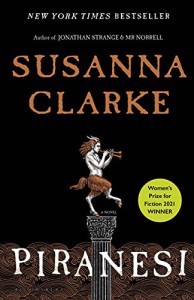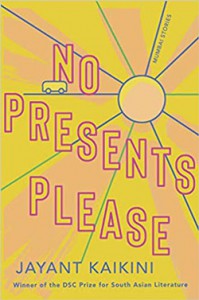Tired of doomscrolling? We think you’d like these staff recommendations—hailing from the UK, India, and Turkey. Sign up for our newsletter to get these recommendations delivered right to your inbox.

Like so many of us in this pandemic, my reading has turned to sci-fi and magical realism. When our world is wedged between the hybrid machination of zoom and an increasingly taxing everyday life, fantasy provides an escape into a world of pleasure. Perhaps no one has done this as masterfully as British author, Susanna Clarke, in her recent fantasy novel Piranesi. Set in a disenchanted world of The House, Piranesi, a futuristic scribe of sorts records his everyday life in an infinite universe consisting of severed statues, columns and fringe pockets of water. His universe is awfully lonely, yet he finds a way to narrate it with an uncanny curiosity. He has an endearing voice, which he often uses to enchant the only other member he interacts with, a dapper and sordid gentleman by the name of “The Other.” Together they enter a surreal journey searching for “Great and Secret Knowledge,” encountering the most mundane of objects along the way. Though The Other is not able to value this world in the same way Piranesi does, the latter often lends him his eyes to make him understand. The beauty of Clarke’s writing is not its construction of a highly centralized and systemized future universe, rather its focus on collapse and the journey that lurks between empty halls. I hope you give it a chance and let Piranesi guide your night.
—MK Harb, Editor-at-Large for Lebanon

Jayant Kaikini is a cult-figure in Karnataka. Because he is a prolific songwriter and critically acclaimed short-story writer, it isn’t uncommon for him to be hounded by locals in Bangalore for selfies. No Presents Please is a compilation of some of his best short-stories written over the last thirty years. In this collection, he writes about people from different classes and castes in Mumbai, a city he lived in for several decades. Walking across Regal Cinema, his characters pass by the iconic Leopold café, give job interviews in old Victorian buildings, and look straight towards the Gateway of India. Written in Kannada, with dialogues spoken in a broken Bombaiyya Hindi and stuttered English, Niranjana’s translation skillfully captures the linguistic heritage of the book. Winner of the 2019 DSC Prize for South Asian Literature and the 2021 National Prize for Translation in Prose, this evocative collection pays tribute to the cosmopolitanism of Mumbai—cafes and chawls alike.
—Suhasini Patni, Editor-at-Large for India

In this relatively short novel, first published in 1943, Turkish author Sabahattin Ali relays the story of an enigmatic translator who, on his deathbed, reveals the existence of an even more mysterious notebook that has accompanied him throughout his life. A loyal coworker then unearths its contents only to discover that what had seemed like an utterly ordinary existence can in fact be traced back to a turbulent youth in 1920s Berlin. The translators Maureen Freely and Alexander Dawe have managed to preserve the original’s remarkable monologues, which evoke the disturbed inner world of a protagonist undoubtedly influenced by the neurotic themes and fears of the age. A tale of first love, bitter disappointment, and melancholic yearning, Madonna in a Fur Coat is a haunting read bound to make you look both within and beyond.
—Andriana Hamas, Editor-at-Large for Bulgaria
*****
Read more on the Asymptote blog:

